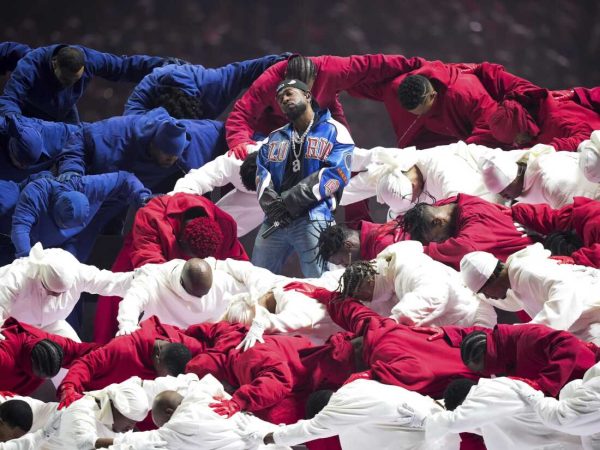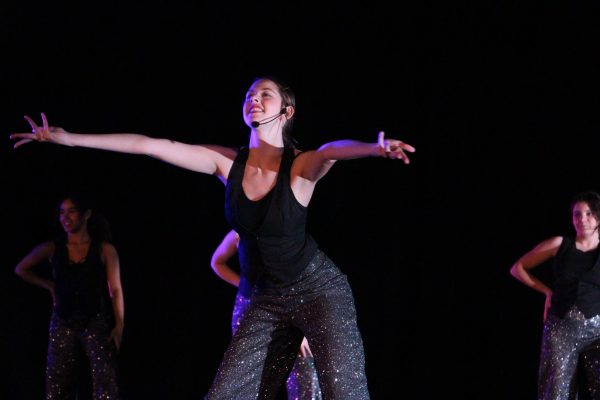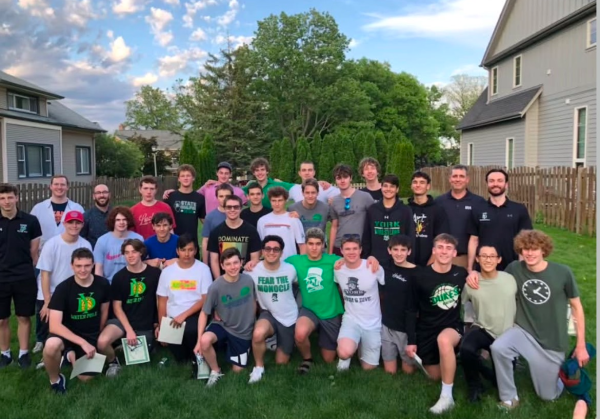“I am Mrs. Maisel. Thank you and goodnight!”
A review of “The Marvelous Mrs. Maisel.” Spoilers ahead.
“The Marvelous Mrs. Maisel”: a show set in the 1950’s about your average Jewish American housewife.
Or, at least that’s what you’d think.
If you have Amazon Prime, then you have probably heard of the two-time Golden Globe winning series starring Rachel Brosnahan, Alex Borstein, and Michael Zegen. It’s the story of Miriam Maisel (Rachel Brosnahan), nicknamed Midge, and her life as Joel Maisel’s (Michael Zegen) wife. Her life seems like a fantasy: living in Manhattan on the Upper West Side in a grand apartment, having two kids, following her husband around from comedy gig to comedy gig and not working.
But her life takes a surprising turn when Joel cheats on her with Penny, his secretary (more specifically, “his idiot secretary” as Midge likes to call her).
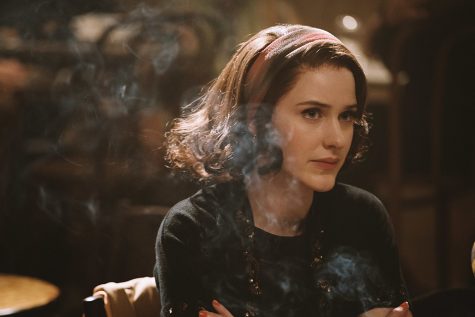
Suddenly, Midge doesn’t know what to do. For as long as she can remember, there has been a track she must follow: go to school, get married, have kids, settle down. When her train derails, she turns to drinking and stand up comedy – a hidden talent she didn’t know she had (the stand up comedy, not the drinking). Susie Myerson (Alex Borstein) “discovers” her at the Gaslight Cafe in Greenwich Village and deems herself Midge’s agent.
Throughout the rest of the season, we follow Midge and her discovery of how to be an independent, strong woman and her hidden ability to make people laugh, Joel and his internal fight of what to do and how to handle the whole situation with Penny and Midge, and Susie and her passion to get Midge’s name (and hers as well) out there for the public to see.
Each episode brings on a new set of laughter and tears. Although put under the “comedy” genre, this show also weaves points of seriousness and sadness into the narrative. With its ability to transport you back in time to 1950s New York City, I felt sucked into the story every single time. I never wanted the episodes to end. I wanted to go downtown the Greenwich Village and watch Midge perform at the Gaslight or, oddly, even to babysit her kids on the Upper West Side. The last ten minutes of every episode are a literal roller coaster, and never, ever the same as the last. I think that’s what makes this show so good: the unpredictability of the storyline, which is very similar to the unpredictability of Midge’s life (or anyone’s life for that matter).
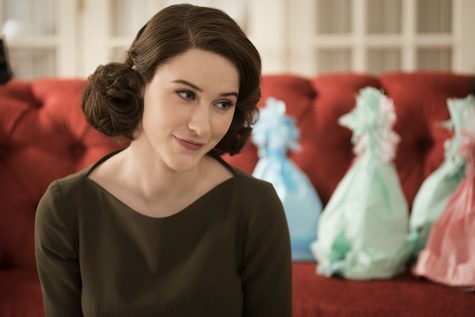
Midge is my favorite character in the show by far. Brosnahan plays Midge so well that by the end of the episode you feel all of the same feelings that she feels, whether it be confusion, stress, or excitement. With some comedy shows, viewers aren’t necessarily as attached to the main character, (for example, people aren’t a fan of Eric Forman from “That 70s Show,” but could watch a full length feature film of just Donna Pinciotti) but with “Maisel,” you can’t help but become attached to Midge and everything she stands for. She is smart – a graduate of Bryn Mawr University – cunning, and confident. She is everything a woman would want to be in the 1950s and a stepping stone for feminists of today.
Michael Zegen’s performance as Joel is so convincing, you forget that Zegen is actually a decent human and not a
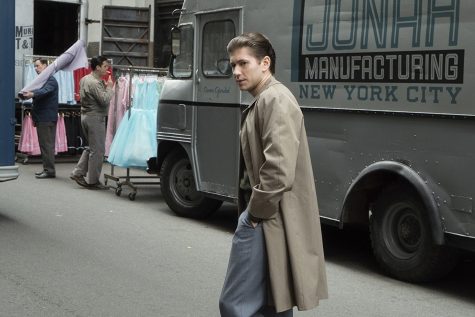
steaming pile of trash like his character is. Zegen knows how to get this message across that Joel is confused about his life and doesn’t know how to handle it. He is able to make me want to throw my computer or TV or phone off of a ten story building because of all of the really terrible choices Joel is making. Many actors aren’t able to do that. Kudos to you, Mr. Zegen.
Any scene with both Midge and Joel is raw and real. It feels as if the viewer is intruding on something that they shouldn’t be seeing or hearing – a lot like when you would hear your parents arguing in hushed tones and you knew you probably shouldn’t be listening in on it but you were anyways.
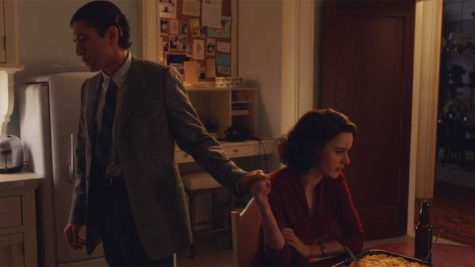
Susie Myerson: the woman you might see leaning against the wall in a dark, dirty alleyway, and begin to walk away from. She is an absolute spitfire, and the complete opposite of Midge. But like they say, opposites attract. Played by Alex Borstein – who you would probably recognize immediately if she spoke like her most famous character Lois Griffin on “Family Guy” – Susie is a very rough and tumble lady. It’s her way, or the highway. Unfortunately, because she has this attitude, she wards off many of the people she meets. She’s all alone in the world and admits this to Midge in one episode, who immediately feels bad and quickly says that she will always be there for Susie. She’s kind-hearted and means well. I adore any scene involving both Midge and Susie because it is always followed by intense emotions of either happiness or sometimes sadness. My favorite scene with Midge and Susie is when Susie keeps telling Midge not to cry or else she will cry, and ends up crying herself and exclaims “There’s, like, water on my face! What does it look like; have you got a mirror?”
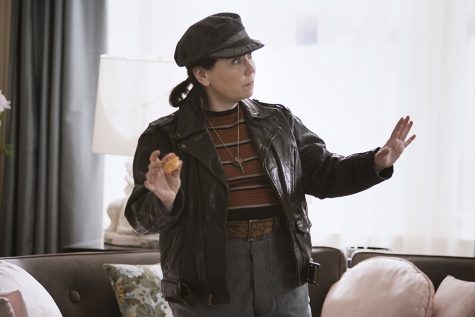
Which is one of the things I love most about this show; it’s not like “Friends” where the little hilarious quips are preceded by you saying the line before Ross does or followed by a laugh track, they just sneak in there and you have to keep your ears open and actually pay attention to the story. Like when Joel mumbles to Midge that she should “try out for the Yankees” after she repeatedly chucks his clothes at him at full force. Usually, the funniest lines are the ones that are quietest and that force you to listen, or rewatch the scene. Although at times this show can be quite vulgar with its language, it always adds to the hilarity of the story.
I could not recommend this show enough. It is witty, charming, and interesting; it makes you think, laugh, and cry. I loved every minute of it. If you have Amazon Prime, take a few days and watch this show. You’ll thank me later.
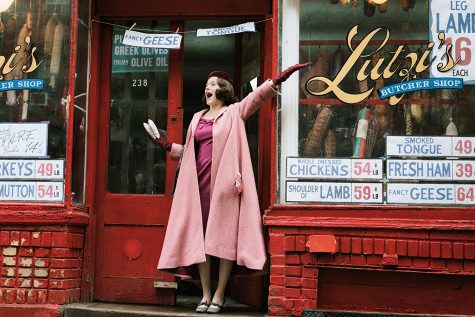
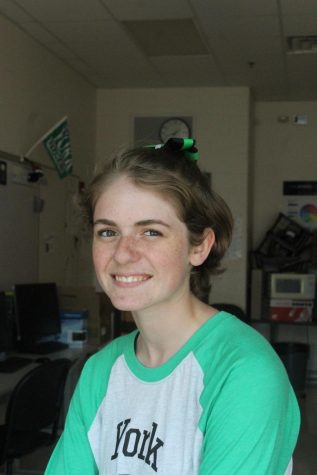
Madeleine DeGrace is a senior on staff. This is her fourth year in a journalism class, and she loves it. She is editor in chief of the 100 year yearbook...


